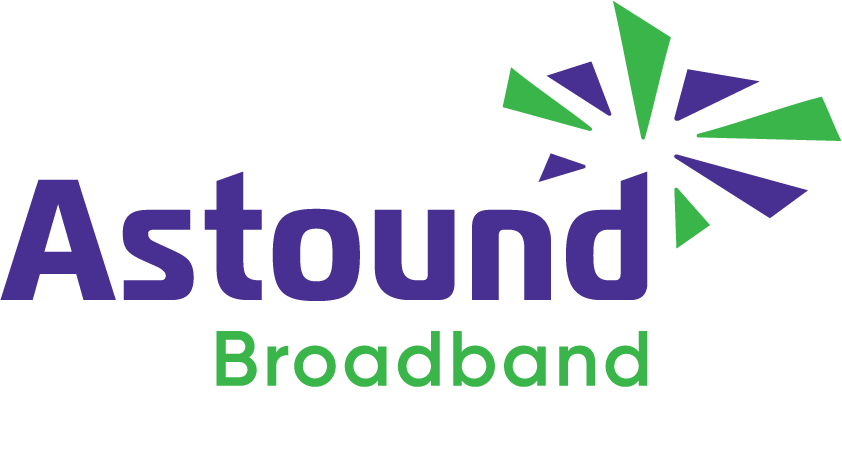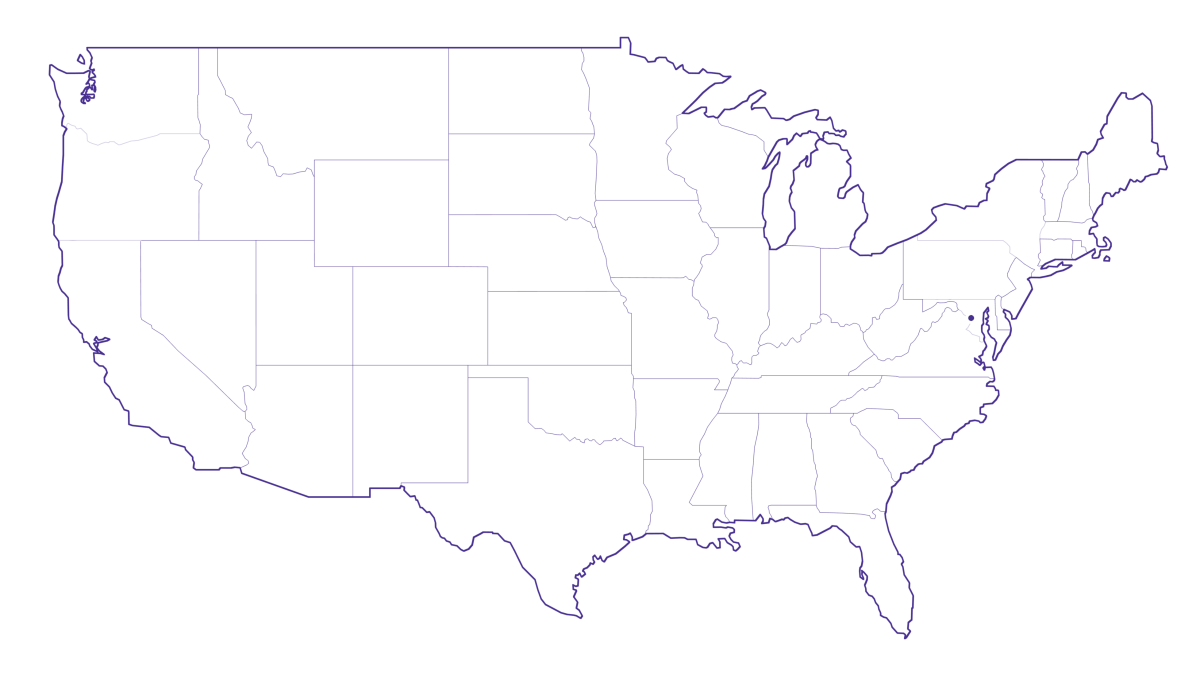Do I need 50 Mbps internet? (and what is it good for?)

If you’re choosing between internet plans for your household, it’s important to know the differences between speeds to understand which will best suit your needs and habits. With so many speeds available, however, it can be difficult to know what will be the best internet speed for streaming, video conferencing, gaming or working from home.
In this article, we’ll explain what 50 Mbps internet speed is, what you can do with it and who might benefit from it.
What you'll learn:
- What is 50 Mbps internet?
- 50 Mbps vs. 100 Mbps
- 50 Mbps vs. 5G home internet
- Is 50 Mbps fast enough?
- Is 50 Mbps worth it?
- How much speed do I really need?
- 50 Mbps internet equipment requirements
- How do I get 50 Mbps internet with Astound?
- Bottomline: Is 50 Mbps good enough?
- Frequently asked questions
- Looking for more topics?
Switch & save
Astound is the #1 cable ISP
Stream live content, work, surf, game and connect to multiple devices with speeds up to 1500* Mbps through our ultra‑reliable fiber‑powered network.*

What is 50 Mbps internet?
50 Mbps is an internet connection that allows users to access the internet, transferring 50 megabits per second. A single megabit contains 1 million bits, meaning 50 Mbps transfers data at 50 million bits per second.
What is 50 Mbps internet good for?
50 Mbps internet is good for users that want to browse the web on a budget. With 50 Mbps internet, one or two users can:
- Browse the internet.
- Stream some videos.
- Download some files.
Though a 50 Mbps internet connection may be fiber powered, your actual speed experience may vary due to network congestion, device performance and the quality of your WiFi connection.
When figuring out usage needs, most people consider download speeds. However, a fast upload speed is essential for sending large amounts of data – whether through file uploads and video conferencing, streaming content or online gaming.
FAST. RELIABLE. AFFORDABLE INTERNET.
50 Mbps at $9.95/mo.
High speed internet access for getting more done – studying, surfing, streaming! Whatever your online adventure, Astound has affordable internet plans to fit your budget.
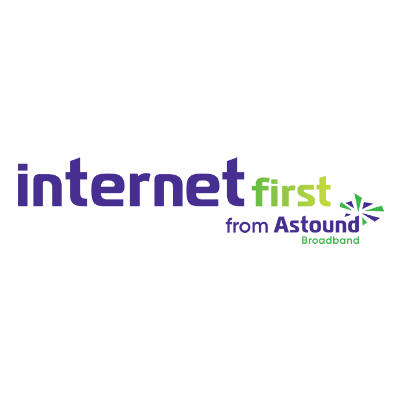
50 Mbps vs. 100 Mbps
When comparing internet speeds of 50 Mbps and 100 Mbps, there are key differences between the bandwidth available for various activities, the number of users or devices that can be supported simultaneously and the types of activities that can be performed.
Here’s a detailed breakdown:
- Download and upload speeds:
- 50 Mbps: Suitable for light usage, including streaming videos on single device, some online games and general browsing.
- 100 Mbps: Doubles the capacity, supporting more devices and more data-intensive activities. Great for better HD streams, online gaming and faster file downloads.
- Number of Devices:
- 50 Mbps: Can support 2 devices simultaneously, depending on the activity. If most devices are used for high-demand activities like streaming video or gaming, you might start noticing slower speeds.
- 100 Mbps: Can support up to 4 devices simultaneously. It’s a better option for larger households.
- Online Activities:
- 50 Mbps: Adequate for streaming low-res video but may struggle with multiple streams.
- 100 Mbps: Can handle multiple video streams and light gaming.
The FWA technology gap
You deserve better internet
Fixed Wireless Access (FWA) uses radio waves which are impacted by obstacles like buildings and trees, resulting in reduced reliability.
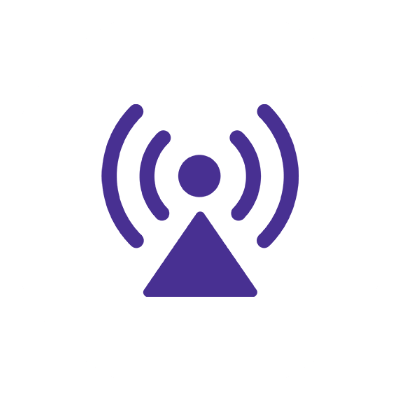
50 Mbps vs. 5G home internet
50 Mbps and a 5G home internet connection are two different internet technologies.
Fiber and cable internet connections offer consistent speeds with minimal interference, lower latency, more reliability and broader coverage. Most urban and suburban areas are equipped with cable and fiber infrastructure.
5G home internet is a wireless internet service that operates on high-band frequency radio signals transmitted over the air by 5G cell towers. While 5G internet provides faster speeds than the previous 4G/LTE technology, performance can be inconsistent.
5G’s wireless signal transfer introduces latency, resulting in slower data transfer and lag for applications that require real-time response, such as gaming and video conferencing. Other factors that can affect 5G’s performance include:
- Distance between devices and cell towers.
- Weather events.
- Signal interference from physical barriers like buildings.
- Network congestion.
In addition, 5G home internet is a newer technology, with coverage limited to select urban areas with 5G infrastructure. 5G home internet plans provide less value to users, as some providers include data caps in their plans while charging extra fees when you exceed the limits and throttle the speeds.
The cost of 50 Mbps plans varies depending on your ISP. However, most ISPs bundle internet, mobile and TV services to make them affordable. Additionally, if you are a prior ACP beneficiary, you can transfer your ACP benefit to Astound or choose from one of our many low-cost options, including Internet First.
Is 50 Mbps fast enough?
50 Mbps is recommended for light internet usage. Learn more about how 50 Mbps can handle different activities online, depending on the bandwidth each user and device needs.
For gaming
50 Mbps will get you gaming online on a single device. With a 50 Mbps connection, you’ll be able to:
- Play some games.
- Watch some streams on YouTube or Twitch.
- Download some games and game updates.
If you’re a serious or competitive gamer, check out our higher speeds and dedicated gaming router. Our gaming router optimizes performance and provides high-quality streaming experiences.
Learn more: What internet speed do I need for gaming?
For streaming
Streaming platforms like Netflix and YouTube recommend a minimum of 3 Mbps and 5 Mbps, respectively. With a 50 Mbps connection, your household should be able to:
- Stream some videos.
- Stream audio.
Your stream quality will depend on the number of people and devices in your home. If you’re concerned about bandwidth, consider looking into higher speeds, such as 300 Mbps.
Learn more: What internet speed do I need for streaming?
WiFi that just works!
WiFi plans for any home
Tiny, large or somewhere in between; find WiFi coverage to fit any space. Blanket your entire home with a fast and ultra‑reliable connection.
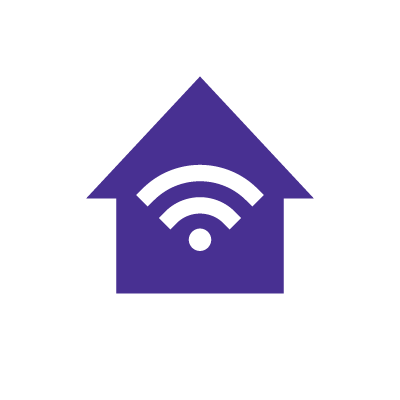
For working from home
A 50 Mbps connection provides just enough speed and bandwidth to handle working from home. You’ll be able to do the following tasks:
- Video conference on platforms like Zoom, Google Meet, Slack or Teams.
- Manage email and access the web.
If you have multiple users working from home on different devices, or need to access cloud-based development or other bandwidth intensive applications, check out some of our higher speed plans, such as 600 Mbps or 1500 Mbps.
Learn more: What internet speed do I need to work from home?

Mesh WiFi with
eero Secure
Enhanced Whole Home WiFi uses multiple routers (or eeros®) to boost range, speed, and stability, while eero Secure, included at no extra cost, offers parental controls, ad blocking, and internet backup for constant connectivity.
For smart devices and IoT devices at home
Smart home and IoT devices require a minimum internet speed of 25 Mbps download and 3 Mbps upload. If you have more than two smart devices, you’ll reach your bandwidth ceiling.
Smart devices, unlike personal devices, are always on and accessing your bandwidth. If you have multiple smart and personal devices connected, consider them when choosing your internet speed. Each additional smart home or IoT device may need up to 10 Mbps.
If you find you are exceeding your Mbps, look into a higher speed to keep your devices online.
For your apartment
Determining whether an internet speed of 50 Mbps is enough for living in an apartment depends on a few factors: the number of individuals in the apartment, their internet habits and the number of devices.
In most settings, apartments tend to be smaller, with fewer occupants and fewer connected devices.
50 Mbps will provide upload speed and download speed for two people. However, if your household engages in extensive online gaming, 4K content streaming or data-intensive tasks, you will want to consider a higher speed plan.
Learn more: How to set up your internet and WiFi in a new apartment
For a large home
Larger homes typically house more people, each with individual devices. A home may also have connected smart devices.
A 50 Mbps internet connection can provide connection to a household, but overlapping online activities, such as gaming, streaming, or video conferencing, may cause bandwidth issues.
Additionally, smart devices, heavy-bandwidth activities or other unanticipated users—such as visitors or guests—may strain your internet speeds. If so, you may want to consider higher speeds like 600 Mbps or 1500 Mbps.
Internet speed is important for a homeowner, but so are reliability and coverage. If you’re worried about dead zones or an unreliable connection, consider introducing a mesh WiFi router into your home.
Mesh WiFi expands home WiFi coverage, reduces signal interference and optimizes the performance of your wireless devices. Moreover, mesh WiFi routers are flexible, modular and moveable. If you want more coverage throughout your home, it’s as simple as placing a new device where you want a connection.
Learn more: How to set up your internet in a new home
Is 50 Mbps worth it?
50 Mbps is ideal for households with less than two individuals simultaneously accessing the internet. It’s great for one user and one device, as long as that user isn’t using excessive bandwidth.
With a 50 Mbps internet connection, you’ll be able to:
- Browse the internet.
- Stream videos.
- Play some video games online.
- Participate in online learning.
- Work from home.
- Upload content to social media.
When should you consider upgrading to a faster internet speed? It may be time to upgrade to a faster internet speed if you experience any of these issues:
- Network congestion.
- An increase in users in your household.
- An increase in devices in your home.
- Frequent buffering.
- Long loading times.
- Latency or lag while gaming online.
- Slow upload or download speeds.
- Video connectivity issues when streaming.
- Poor video or audio call quality.
Before deciding to upgrade, evaluate your internet requirements. It might be a good idea to do regular speed tests to determine whether the current provider delivers their advertised speeds, as well as check your minimum download speed and minimum upload speed.
Also, try optimizing your WiFi to access the highest speeds available. By optimizing your WiFi, you’ll improve your network’s performance, minimize channel interference and rebalance your device load.
Find your speed
What speed do you need?
Maybe you just need the essentials—or maybe you need to unleash the ultimate internet speed. Explore your options to get the best experience for every device in your home.
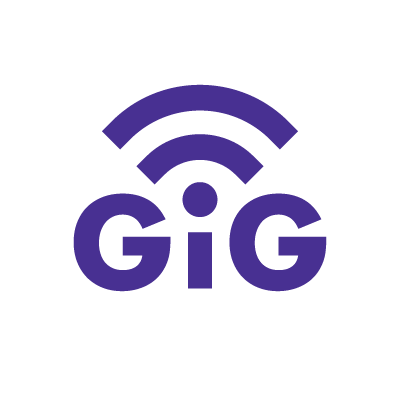
How much speed do I really need?
To determine your internet speed connection needs, ask yourself the following questions to understand your usage patterns:
- How many people in my household will use the internet simultaneously? Consider how many people will be using the internet. Each user adds to the demand for bandwidth.
- What are the online access needs for my household? Identify the primary online activities people in your home typically perform, such as streaming, gaming, video conferencing, browsing and uploading photos and videos to social media.
- Which devices will be connected? Determine the number and types of devices like smartphones, laptops, smart TVs and gaming consoles that will be in use.
- Will anyone be working remotely or learning online? If anyone in your household works from home or takes classes online, consider the bandwidth required for video conferencing, file sharing and any other work-related tasks.
- Will anyone stream HD or 4K videos? If you frequently stream high-quality videos, a faster internet connection is essential to ensure smooth playback without buffering.
- Is gaming a priority for anyone? Gamers may require faster speeds for better gaming performance, with more immediate download and upload speeds and reduced latency.
- Does the house have smart home devices? IoT devices, like smart thermostats or security systems, will impact your accessible bandwidth.
- Are large files frequently downloaded or uploaded? Consider the need for faster download and upload speeds if you work with large files or use cloud services.
- Am I satisfied with my current internet speeds? Identify any pain points or limitations you may have.
- What are my future internet needs? Do you anticipate potential changes in your internet use? Will you be adding more devices or engaging in more data-intensive activities?
- What internet plans are available to me now? Check with local internet service providers to see what plans and speeds are available at your location.
Balance performance, cost and usage to choose the best plan for your household.
50 Mbps internet equipment requirements
You’ll need the following equipment to fully utilize the high-speed capabilities of a 50 Mbps connection:
- Fiber or DOCSIS compatible modem: A fiber or DOCSIS modem is required to convert optical signals from a fiber/COAX line into electrical signals so your router and devices can understand each other. Astound’s installation process includes a modem. But you can bring your own modem if it meets our compatibility requirements.
- A router: A high-quality router supporting high-speed connections is necessary to distribute the internet signal to your wired and wireless devices. Look for a router supporting Ethernet ports and modern WiFi standards like 802.11ac or 802.11ax (WiFi 6).
How do I get 50 Mbps internet with Astound?
50 Mbps internet is available for eligible households starting at $9.95/mo and includes equipment, no credit check and no cancellation fee. See if you qualify.
Build your plan
Your perfect plan is just a click away
Get the speeds, WiFi, mobile and TV plans you need all at an affordable price. Bundle your services with Astound and see how much you can save.

Bottomline: Is 50 Mbps good enough?
Generally, 50 Mbps provides bandwidth to support two users engaging in non-simultaneous activities such as streaming, online gaming or video conferencing.
For individuals with high internet usage, such as extensive online gamers or households with many people and multiple devices, higher speeds, like 600 Mbps, are recommended.
Frequently asked questions
Does Astound offer 50 Mbps internet plans?
Yes, to qualifying beneficiaries of Internet First, Astound offers 50 Mbps internet plans in select areas.
Is 50 Mbps WiFi good?
50 Mbps WiFi is good for a single user who does not need a lot of bandwidth. If you feel you may need more bandwidth for yourself or your household, look into other speeds.
What is the average upload speed for 50 Mbps?
While we can’t guarantee an average of upload speeds for 50 Mbps, aim to find a provider that can offer 25 Mbps upload. However, due to the limitations of existing WiFi technology, upload speeds on WiFi can be slower depending on the device.
*Internet speeds may vary & are not guaranteed. Certain equipment may be required to reach advertised speeds. DOCSIS 3.1 modem with 2.5GE physical LAN port is required for 1 Gigabit speeds and higher. See astound.com/yourspeed for why speeds may vary. To view Astound’s FCC Network Management Disclosure see astound.com/policies-disclaimers. Limited time offer, subject to change without notice. Advertised promotional price valid for duration of the stated promotional period from time of service activation. Regular rates apply after promotional period ends. Equipment not included and is extra. Modem required for Internet service. Enhanced Wi-Fi or Whole Home Wi-Fi (eero) not included and is add’l. Offer includes a monthly discount for enrollment in both automatic payments (autopay) & paperless billing (e-bill). Discount of $10 applies with automated bank account deduction or a discount of $5 applies with automated credit/debit card payment. Valid email address required. Must complete enrollment in autopay and e-bill within 30-days of placing the order. Without enrollment, the discount does not apply. Discount appears on bill within 3 bill cycles after enrolling. If either autopay or e-bill is canceled, services are changed, or the account is not in good standing, then the monthly discount will be discontinued. Offer valid only for new residential Astound customers or previous customers with an account in good standing who have not had Astound service within the last 60 days. Any add’l services, equipment, premium channels & other tiers of service are subject to an add’l charge & regular increases. A one-time activation fee of $14.99 (in addition to any installation fees) will be charged & is subject to change. Add’l fees apply for taxes & surcharges, and are subject to change. WA RESIDENTS: unless otherwise specified, price does not include a 2% Regulatory Administration Fee. For details about taxes, fees & surcharges visit astound.com/fees. No early termination fees apply in the event service is terminated in advance of the promotional end date. Customer is responsible for any accrued service charges in the event service is canceled. Subject to credit check. Not all services & speeds are available in all areas. A multi-product discount may be available to qualifying addresses with a subscription to mobile, TV, and 600 Mbps Internet or higher. Discounts will be reflected in your order cart at time of purchase, if available. Other restrictions may apply. All services are governed by the Astound Customer Terms & Conditions that can be found at astound.com/policies-disclaimers. © 2025 Radiate HoldCo, LLC d/b/a Astound Broadband. All rights reserved.
While we have made every attempt to ensure that the information contained in this site has been obtained from reliable sources, Astound is not responsible for any errors or omissions, or for the results obtained from the use of this information. All information in this site is provided “as is”, with no guarantee of completeness, accuracy, timeliness and without warranty of any kind, express or implied, including, but not limited to warranties of performance, merchantability and fitness for a particular purpose. Certain links in this site connect to other websites maintained by third parties over whom Astound has no control. Astound makes no representations as to the accuracy or any other aspect of information contained in other websites.
eero Plus is available for an additional $9.99/month and requires subscription to whole home WiFi powered by eero.
